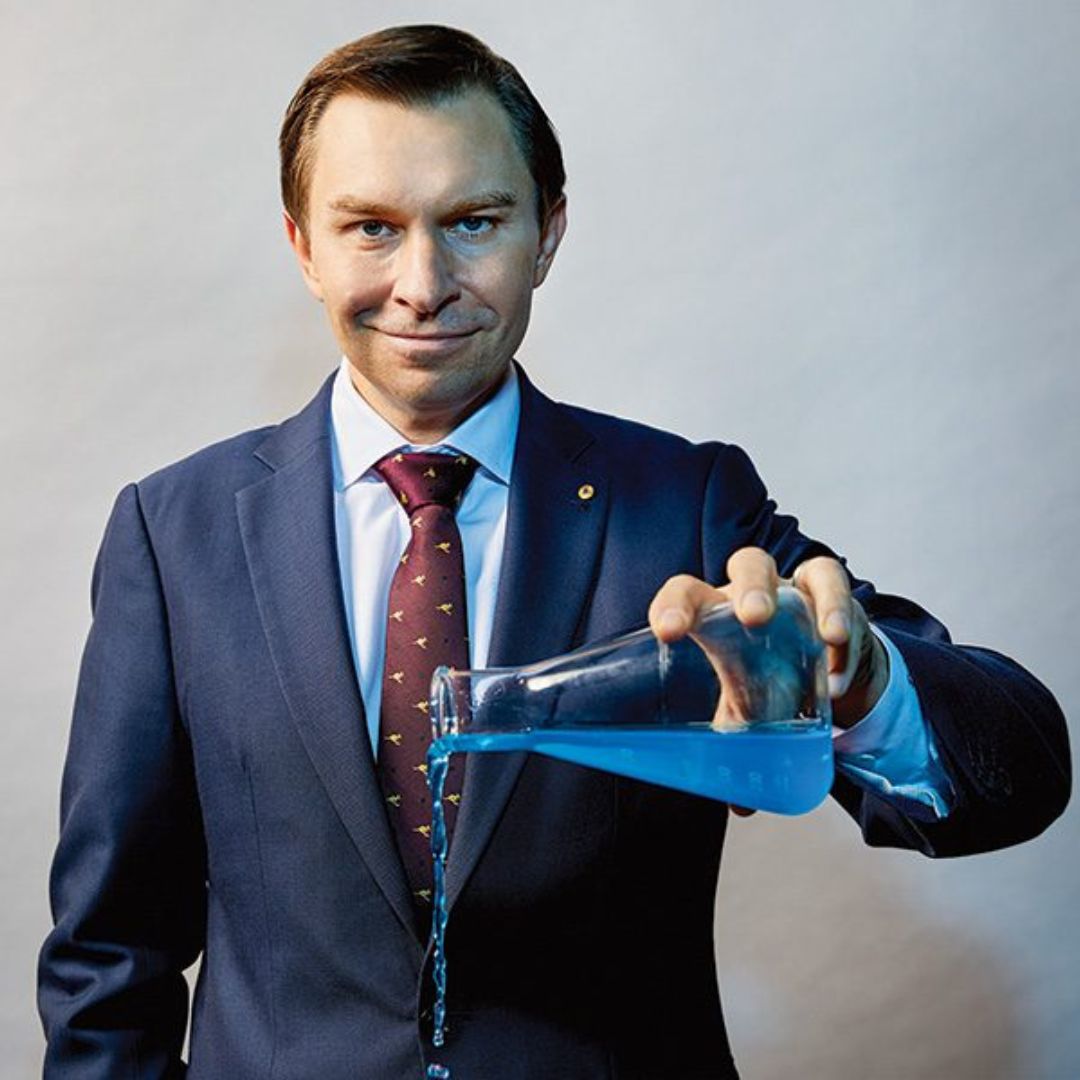Unlocking the Secrets of Dr. David Sinclair's Anti-Aging Regimen
In the quest to extend the human lifespan, Harvard scientist Dr. David Sinclair stands as a prominent figure. He believes that we might already have individuals capable of living up to 150 years, thanks to the recent advances in anti-aging research. In a bid to slow down his own aging process, Dr. Sinclair has meticulously curated a daily supplement and drug regimen. He graciously shares this regimen, though without endorsing specific brands or offering personal advice. In this article, we will delve into Dr. Sinclair's regimen, exploring each component's potential anti-aging properties and the scientific evidence supporting their use.
Resveratrol: Sipping from the Fountain of Youth
Resveratrol, a polyphenol found in grapes, makes its appearance in Dr. Sinclair's daily regimen at a dosage of 1 gram. This compound activates sirtuin enzymes linked to longevity. Human studies have shown that resveratrol-enriched wine can reverse aging processes, hinting at its potential benefits for humans. In animal experiments, resveratrol has proven to delay heart and muscle aging, promote kidney health, and improve memory.
https://gataca.in/products/trans-resveratrol
Metformin: A Diabetes Drug Turned Anti-Aging Agent
In the evening, Dr. Sinclair ingests 800 mg of Metformin, a drug primarily used to treat type 2 diabetes. Beyond its role in managing blood glucose, Metformin exhibits anti-aging properties. Animal studies have highlighted its ability to boost immune function, protect against organ deterioration, and even reverse intestinal aging. When combined with leucine, it prevents muscle atrophy, further emphasizing its potential in slowing down the aging process.
Spermidine: Unveiling the Secrets of Wheat Germ
Dr. Sinclair includes 1 mg of spermidine in his daily routine, a natural compound found in wheat germ and various foods. Spermidine induces autophagy, the body's cellular waste disposal system. In animals, spermidine has demonstrated benefits such as improved cardiovascular health, enhanced cancer immunity, reduced brain inflammation, and slowed liver aging.
Amazon: https://tinyurl.com/bdfw2b4t
Quercetin: The Senescence Fighter
At 500 mg daily, quercetin takes a prominent spot in Dr. Sinclair's regimen. This polyphenol possesses senolytic properties, capable of removing senescent cells associated with aging. Studies often combine quercetin with dasatinib, a leukemia drug, for enhanced effects. Animal experiments have indicated potential benefits in muscle and bone regeneration, Alzheimer's treatment, heart function improvement, and blood sugar level reduction.
Amazon: https://tinyurl.com/mr3be2tp
Fisetin: The Lesser-Known Senolytic
Fisetin, another polyphenol, makes its presence known with a daily dose of 500 mg. Like quercetin, fisetin has senolytic properties and can alleviate cognitive dysfunction, reduce depression-like behavior, and enhance kidney health. It also boosts muscle size and strength while extending lifespan in animal studies.
Amazon: https://tinyurl.com/4mewc4p5
Vitamins D3 and K2: Building Stronger Bones and a Cancer Defense
Dr. Sinclair adheres to recommended daily doses of 4,000 to 5,000 IUs of vitamin D3 and 180 to 360 mcg of vitamin K2. The combination of vitamin D3, omega-3s, and exercise has shown a 60% lower risk of cancer in older adults. Vitamin D3 activation of sirtuins is believed to slow colorectal cancer growth, and it also helps in arthritis management. Furthermore, vitamin D3 and K2 collaborate to enhance bone strength.
Amazon: https://tinyurl.com/4sybkcej
Low-Dose Aspirin: Balancing Cardiovascular Health
Dr. Sinclair takes a daily dose of 83 mg of aspirin, a controversial choice for some. While the evidence on its cardiovascular benefits is mixed, Sinclair continues due to a perceived reduction in cancer risk. It's essential to note that aspirin's effectiveness in aging-related contexts remains a topic of ongoing research.
Trimethylglycine (TMG): Safeguarding Methyl Groups
To counteract the potential depletion of methyl groups caused by high nicotinamide levels, Dr. Sinclair includes 500 to 1,000 mg of TMG daily. Although he acknowledges uncertainty about its necessity, TMG provides a precautionary measure to replenish methyl groups, crucial for various bodily functions, including antioxidants.
https://gataca.in/products/tmg-trimethylglycine
Rapamycin: The Controversial Longevity Compound
While Dr. Sinclair occasionally takes rapamycin, he hasn't disclosed the exact dosage. Rapamycin's effects are notable but come with caveats. It can extend the lifespan of animals significantly, reverse hair graying, prevent muscle weakness, and enhance immunity against the flu. However, taken too early in life, it may stunt growth and development.
In closing, Dr. Sinclair's anti-aging regimen comprises a diverse array of compounds, each with unique potential benefits backed by scientific evidence. However, it's important to remember that most of these compounds have not undergone extensive testing in humans for their anti-aging effects. Dr. Sinclair's regimen serves as an intriguing experiment, a testament to the ongoing pursuit of longevity. While we await more robust human studies, it's wise to consult with a healthcare professional before embarking on a similar journey to unlock the secrets of a longer, healthier life.
Nicotinamide Mononucleotide (NMN): The Elixir of Youth

Dr. Sinclair starts his day with 1 gram of Nicotinamide Mononucleotide (NMN). NMN acts as a precursor to nicotinamide adenine dinucleotide (NAD+), a molecule vital for cellular energy production. Declining NAD+ levels are associated with aging, and NMN aims to counter this decline. Extensive clinical trials suggest NMN's potential to enhance physical performance, sleep quality, insulin sensitivity, and even skin aging. Furthermore, it exhibits positive effects on cardiovascular and neurological health, showcasing promise as a potent anti-aging compound.
https://gataca.in/products/nmn-500-india-s-purest-nmn-anti-aging-supplement-for-enhanced-cellular-energy-dna-repair





